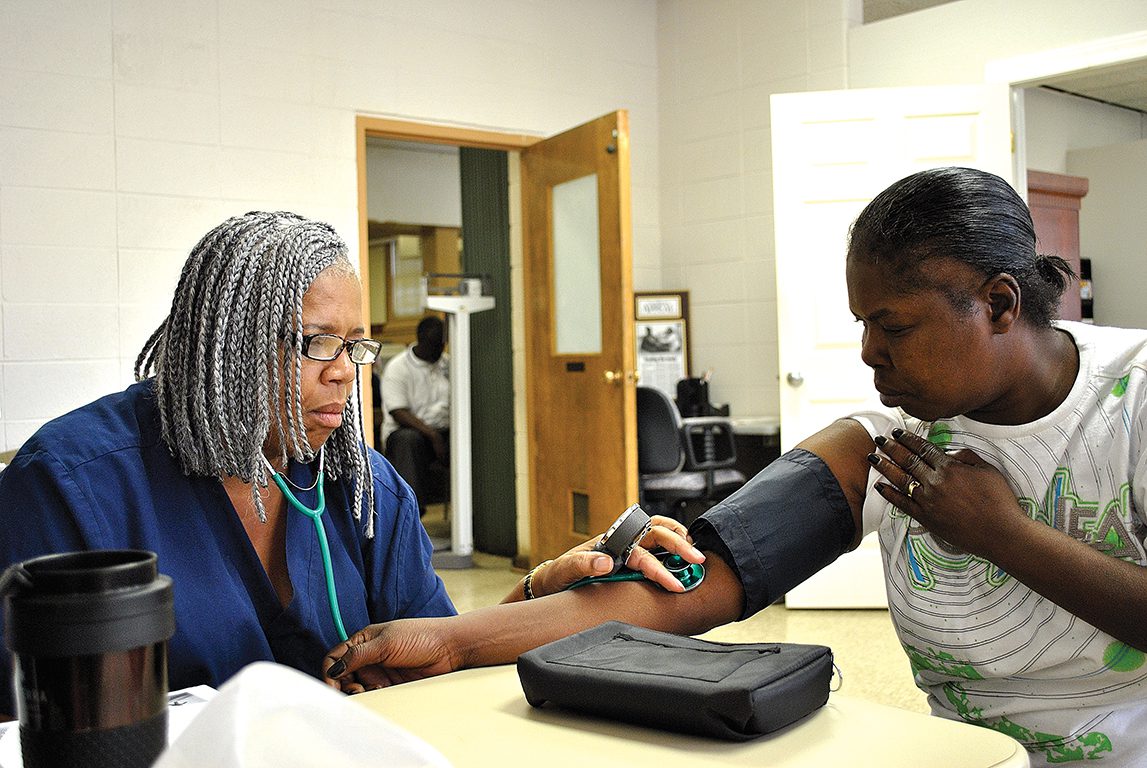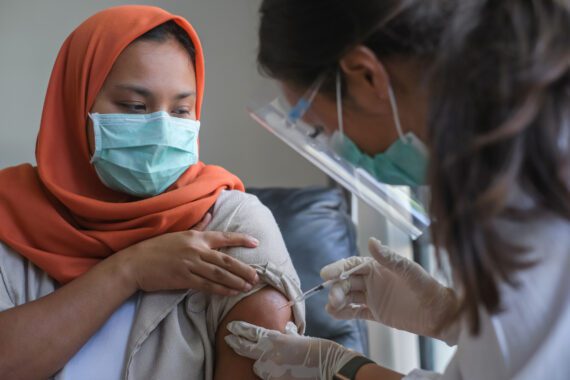Editor’s note: This post is the last installment of the weekly, year-long series called the Nourishing Effect. The series explored how hunger affected health through the lens of the 2016 Hunger Report. The Hunger Report is an annual publication of Bread for the World Institute.
By Cynthia Woodside
It was just about a year ago that Bread for the World Institute launched its 2016 Hunger Report, The Nourishing Effect: Ending Hunger, Improving Health, Reducing Inequality.
The report included a study from Boston University/Children’s Health Watch that found hunger adds at least an additional $160 billion to U.S. annual healthcare costs. Major recommendations of the report included requiring all healthcare providers to use the Hunger VitalSign,™ a two-question survey to assess hunger among patients, and requiring that this data be aggregated, analyzed, and reported jointly by the Departments of Agriculture and Health and Human Services (HHS).
Since then, there have been a number of significant developments in promoting awareness and action on the hunger-health connection.
- The Sustainable Development Goals (SDGs), which link hunger and health, along with poverty, jobs, education, climate change, peace and justice, and sustainable cities, were endorsed by 193 countries, including the United States. September 2015
- The Root Cause Coalition, a national nonprofit, was established to address the root causes of health disparities, focusing on hunger and other social determinants of health. October 2015
- The American Academy of Pediatrics (AAP) adopted a policy statement calling on its 60,000 members to begin using a two-question survey to screen for hunger among their patients, to link patients with community resources, and to advocate for increasing access to and funding for federal nutrition programs. December 2015
- The Centers for Medicare and Medicaid Services (CMS) in the U.S. Department of Health and Human Services (HHS) announced a new grant program.The grants will fund research to test whether responding to Medicare and Medicaid participants’ health-related social needs—specifically food insecurity, housing, utilities, domestic violence, and transportation—can improve healthcare delivery, enhance the quality of care, and reduce its cost. January 2016
- The President’s Council of Economic Advisers (CEA) issued a report on SNAP that touted the health benefits of adequate food and nutrition, such as reducing the incidence of low birthweight babies, heart disease, and diabetes. The report also highlighted the health consequences of inadequate SNAP benefits, including increases in hospital admissions when benefits were exhausted before the end of the month. January 2016
- The National Hunger Commission acknowledged the hunger-health connection by recommending that Medicare and Medicaid reimburse the costs of delivering meals to the homes of seniors, persons with disabilities, and others at risk of hospital admission or readmission. It also recommended examining ways to increase SNAP benefits so they are less likely to run out before the end of the month. January 2016
- The Aspen Institute issued a report recommending a “doable set of strategies” for the public sector, other sectors such as health care, philanthropy, the research community, and the food industry to ensure that food insecurity and hunger are no longer drivers of poor overall health and health outcomes, nor a financial burden on the national economy or individuals. February 2016
- The President’s Advisory Council for Faith-based and Neighborhood Partnerships to Address Poverty and Inequality included the Hunger Report’s finding of $160 billion in additional healthcare costs in its report to the president. The report also recommended that HHS issue guidance to all healthcare providers on screening their patients for signs of food insecurity and poor nutrition. October 2016
It is still too early to determine if these collective activities have begun to move the needle on addressing hunger in order to improve health, but we know that there is a growing understanding among organizations and individuals around the country about the hunger-health connection.
With the SDGs as a new framework, we will continue our work and maintain our hope that additional actions to address hunger as a health issue in the years to come will result in lower healthcare costs and healthier people.
Cynthia Woodside is senior domestic policy analyst at Bread for the World Institute.



